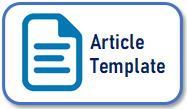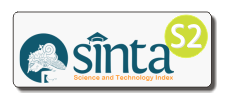Human Resources Readiness of Small Medium Enterprises (SMEs) for Halal Product in Indonesia
DOI:
https://doi.org/10.14421/grieb.2022.102-08Keywords:
Halal Business Industry, Halal Certification, SMEs, Human Resources ManagementAbstract
The halal industry has caught the attention of the world today. The halal industry is not only in demand by Muslim countries but also by countries with non-Muslim majority populations. The implementation of the halal certification program for Small and Medium Enterprises (SMEs) also affects the process of developing SMEs' human resources in Indonesia. Increasing the capacity of human resources is needed to improve the competence, skills, innovation, and creativity of individuals in carrying out productive activities to increase domestic production. This study is expected to be able to provide an overview (steps that need to be achieved, policy strategies, and various efforts that need to be made) related to the role of government bureaucracy, academics, and business actors in optimizing the halal product guarantee system to support the halal industry in Indonesia. This study uses a combination of qualitative and quantitative data. The method used is literature study, in-depth interview, benchmark, and Analytical Networking Process (ANP). A strategic solution for SMEs in increasing the halal market segment is the need for socialization of assistance and submission of halal certification. In addition, the implementation of integrated halal product supply chain management is very necessary to ensure the quality of halal products and services.
References
Akim, Konety, N., Purnama C., & Adilla, M. H. (2018). Pemahaman usaha mikro, kecil dan menengah (UMKM) di Jatinangor terhadap kewajiban sertifikasi halal pada produk makanan. Kumawula: Journal of Community Service, 1(1), 31-49. https://doi.org/10.24198/kumawula.v1i1.19258
Al-Shami, H. A., & Abdullah, S. (2023). Halal food industry certification and operation challenges and manufacturing execution system opportunities. A review study from Malaysia. Materials Today: Proceedings, 80, 3607–3614. https://doi.org/10.1016/j.matpr.2021.07.331
Ardiyansyah. (2019). Analysis of business decisions in purchasing halal food products in Ho Chi Minh City, Vietnam [Unpublished thesis]. Institut Pertanian Bogor.
Arrezia, N. (2015). Effect of halal certificate on sales increase of Jasaboga SMEs in Bogor City [Unpublished thesis]. Institut Pertanian Bogor.
Aslan, H. (2023). The influence of halal awareness, halal certificate, subjective norms, perceived behavioral control, attitude and trust on purchase intention of culinary products among Muslim costumers in Turkey. International Journal of Gastronomy and Food Science, 100726. https://doi.org/10.1016/j.ijgfs.2023.100726
Awaludin, T. (2016). Factors Influencing Islamic commercial banks in deciding to issue sukuk [Unpublished thesis]. Institut Pertanian Bogor.
Badan Penyelenggara Jaminan Produk Halal. (2020). Bahan halal dan proses produk halal. Kemenag RI.
Castaño, G., & Lino, L. (2013). Values (Shalom H. Schwartz) – Conformity. In K. D. Keith (Eds.), The Encyclopedia of cross‐cultural psychology (1st ed., pp. 1322–1323). Wiley. https://doi.org/10.1002/9781118339893.wbeccp595
Diabetes Care and Education DPG. (2009). Cultural food practices (1st ed). Academy of Nutrition and Dietetics.
Effendi, J. (2005). The urgency of halal product assurance system. Jurnal Halal LPPOM MUI, 55, 37-38.
Fischer, J. (2015). Malaysian diaspora strategies in a globalized Muslim market. Geoforum, 59, 169–177. https://doi.org/10.1016/j.geoforum.2014.03.007
Green, J., & Gammon, C. (2016, September 14). How halal food became a $20 billion hit in America. Retrieved from https://www.bloomberg.com/news/articles/2016-09-14/america-loves-muslim-food-so-much-for-a-clash-of-civilizations?leadSource=uverify%20wall
IDOS. (2018). Dossier statistico immigrazione 2018. Centro Studi e Ricerche Immigrazione Dossier Statistico. https://www.dossierimmigrazione.it/scheda-dossier-statistico-immigrazione-2018/
Izberk-Bilgin, E., & Nakata, C. C. (2016). A new look at faith-based marketing: The global halal market. Business Horizons, 59(3), 285–292. https://doi.org/10.1016/j.bushor.2016.01.005
Kohilavani, Abdullah, W. W. N., Yang, T. A., Sifat, S. A., & Sifat, S. A. (2021). Development of safe halal food management system (SHFMS). Food Control, 127, 108137. https://doi.org/10.1016/j.foodcont.2021.108137
LPPOM MUI. (2015). The assessment institute for foods, drugs, and cosmetics (2015). LPPOM Majelis Ulama Indonesia.
Othman, B., Shaarani, S. M., & Bahron, A. (2016). The potential of ASEAN in halal certification implementation: A review. Pertanika Journals of Social Sciences & Humanities, 24(1), 1 - 24.
Maksum, I. R., Rahayu, A. Y., & Kusumawardhani, D. (2020). A social enterprise approach to empowering micro, small and medium enterprises (SMEs) in Indonesia. Journal of Open Innovation: Technology, Market, and Complexity, 6(3), 50. https://doi.org/10.3390/joitmc6030050
Prabowo, R., Singgih, M. L., Karningsih, P. D., & Widodo, E. (2020). New product development from inactive problem perspective in Indonesian SMEs to open innovation. Journal of Open Innovation: Technology, Market, and Complexity, 6(1), 20. https://doi.org/10.3390/joitmc6010020
Rahayu, R., & Day, J. (2015). Determinant factors of E-commerce adoption by SMEs in developing country: Evidence from Indonesia. Procedia - Social and Behavioral Sciences, 195, 142–150. https://doi.org/10.1016/j.sbspro.2015.06.423
Rashid, A. N., & Bojei, J. (2019). The Relationship between halal traceability system adoption and environmental factors on halal food supply chain integrity in Malaysia. Journal of Islamic Marketing, 11(1), 117-142.
Saaty, T. L., & Vargas, L. G. (2013). Decision making with the analytic network process: Economic, political, social and technological applications with benefits, opportunities, costs and risks (4th ed.). Springer New York Heidelberg Dordrecht.
Sari, Y. R., Manullang, N., Anas, T., Narjoko, D. A., Simangunsong, A., Purwanti, W., Khulasoh, L., & Paramitha, F. (2015). Mapping and strategies to increase the competitiveness of SMEs in facing the 2015 AEC and post AEC 2025 (Working Paper Bank Indonesia).
Sukoso. (2020). The latest regulations regarding halal product guarantee. BPJPH.
Thomson Reuters. (2019). State of the global Islamic indicator report 2018/2019. Thomson Reuters dengan Dinnar Standard dan Dubai the Capital of Islamic Economy. https://ded.ae/DED_Files/StudiesAndResearch/SGIE-Report-2018-19_Eng_1540649428.pdf
Wilson, J. (2014). The halal phenomenon: An extension or a new paradigms. Social Business, 4(3), 255-271. https://doi.org/10.1362/204440814X14103454934294
Xin, Y., Khan, R. U., Dagar, V., & Qian, F. (2023). Do international resources configure SMEs’ sustainable performance in the digital era? Evidence from Pakistan. Resources Policy, 80, 103169. https://doi.org/10.1016/j.resourpol.2022.103169
Downloads
Published
Issue
Section
License

This work is licensed under a Creative Commons Attribution-ShareAlike 4.0 International License.
Global Review of Islamic Economics and Business is licensed under a
Creative Commons Attribution-ShareAlike 4.0 International License



















